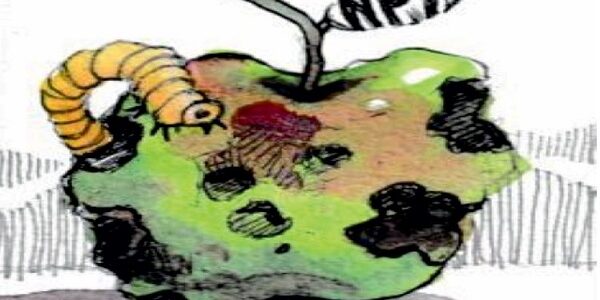
One minor scandal is enough to down the ordinary police officer from his flight. Some other officers need more than one major scandal to make a dent on them. It has taken two major scandals to draw reasonable attention to the life and career of Deputy Commissioner of Police (DCP) Abba Kyari, until his suspension, leader of the controversially celebrated Police Intelligence Response Team (IRT). Hopefully, notwithstanding his gilded position in the Police Force, the scandals will acquire enough amperage to down or irreparably damage him. Last July, the Police Service Commission (PSC) ordered his suspension after the United States Federal Bureau of Investigations (FBI) indicted him together with notorious fraudster, Ramon Abbas, alias Hushpuppi. Between last July and when Mr Kyari went on another caper this January, the police dilly-dallied over the controversial officer’s case, particularly the request by the FBI to have him extradited to the US. After what seemed interminable investigations, the PSC, citing unsatisfactory reports, ordered another round of investigations. The second round of investigations was still in the works when, like a villain fated to destruction, Mr Kyari embarked on a drug scandal captured on video by the National Drug Law Enforcement Agency (NDLEA).
What makes Mr Kyari’s case extraordinarily outrageous is not that it has taken two scandals to undo him, one of which was his self-immolating and audacious January drug gambit, but that the police pussyfooted for nearly seven months to take decisive action on his case. They had ignored series of complaints against him while he led the special anti-robbery squad in Lagos. Secondly, and perhaps even more perverse, for an officer on suspension and facing an international indictment, it was curious that Mr Kyari still had enough latitude during that suspension to continue to perpetrate all sorts of malfeasances. The implication, in case this image disaster is lost on the police, is that Mr Kyari was treated with kid gloves because of his connections, or because he had compromised many other officers. What does this do to the morale of diligent, ethical and hard working officers?

Another implication is that while still suspended, his case was inexplicably not handled by the police hierarchy with the sobriety and gravity it deserved. In short, it could be interpreted to mean that favoured police officers are hardly or often not properly supervised. Worse, for Mr Kyari to continue carrying out selected duties in one form or the other during suspension, and with some of his subordinates acquiescing to his orders, knowing same to be illegal, implies that the Nigeria Police Force (NPF) is not as tight and disciplined a professional law enforcement body as it publicly presents and sometimes asserts vehemently.
Compounding this abominable and nationally embarrassing situation is the jostle between the police and the NDLEA over a fairly straightforward case. The police did not demonstrate enough outrage, and should not have spared Mr Kyari at all, assuming other extraneous considerations had not intervened. It enabled the NDLEA, just emerging from its own lethargy and years of somnolence, to exult over the matter. But if the drug agency had not publicised the case through a press conference, would the police have surrendered their wayward officers? And rather than quietly lick their wounds, the police again pushed the envelope by insinuating the culpability of NDLEA officers in the drug caper that finally brought Mr Kyari down.

Not one to suffer fools gladly, the NDLEA responded in kind by asserting the sanctity of their investigations and reiterating the indictment of the arrested police officers. The scandalous fact that the suspended Mr Kyari led the ill-fated operations should have restrained the police authorities from seeking to make NDLEA an institutional co-accused. It is humbling enough that the police felt mortified by the adverse public perception expected to follow the unusual scandal; but what they needed to do was not to seek illicit relief in involving the NDLEA in the saga, but to pursue brilliant and effective ways of reassuring the public that Mr Kyari did not typify the police force, nor that the police routinely brooked favouritism in handling malfeasant officers.
Unfortunately, the presidency cannot also be absolved of blame in the saga. Nigerians witnessed the spectacle of the PSC crossing swords with the police in late 2020 over the recruitment of constables into the Police Force. The battle, which ended in litigation, quickly became one of who really controlled the police. The Court of Appeal resolved the matter in favour of the PSC. However, if the presidency paid attention to the disaster unfolding over the Kyari/Hushpuppi/cocaine cases, it would have been alert to the urgent need for a presidential overview and review of the Police Force in its entirety. The presidency probably hid behind constitutional provisions to allow agencies such as the police enough latitude to function without constraints. But the men involved are appointees of the president.
Now, much more than the police, the nation is affected by the sordidness of the case, a sordidness that has sadly assumed global dimension. In the eyes of the world, the case portrays the Nigeria Police as an undisciplined organisation, the government as incompetent and inadequate, and the presidency itself distracted or, worst, conniving. It has led to speculations that there is a grand plot to help the ‘favoured’ Mr Kyari evade extradition. Whether true or not, and whether justice is served in Nigeria or abroad, the case calls for a more attentive, disciplined and objective government, atop which sits the presidency. If they could respond fiercely and promptly to the killings of 22 Ondo-bound Muslim travelers in Jos last August, they have a responsibility to maintain the same tempo in all other cases involving threats to law and order.
Credit: The Nation
